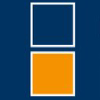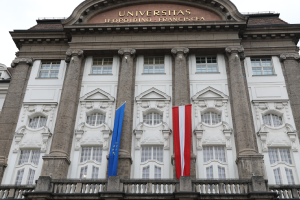Innrain 52, 6020 Innsbruck, Austria
Career Counselling

Universität Innsbruck is the largest institution of higher education in the Tyrol region of Austria. Located in the city of Innsbruck, it places emphasis on research, development, teaching, and continuing education. Over 28,000 students study at the University, with almost half of them coming from outside Austria, which is a higher percentage of international students than most other top Universities in the country.
On the academic and research side, The University of Innsbruck contains 16 Faculties (Architecture, Biology, Business and Management, Cat...
| Establishment year | 1669 |
| Total Students | 28,106 (2022) |
| International Students | 13,439 |
| QS World University Rankings 2024 | =362 |
| Campus Size | N/A |
| Total Number of Campuses | 4 |
| University Website | https://www.uibk.ac.at/en/ |
| No. of Schools and Divisions | 16 Faculties, with Institutes and Departments within |
| Nobel Prize Winner Alumni | 0 (5 Nobel Laureates were Professors) |
| No. of Education Programs | 160 (UG + PG) |
| Student to Faculty ratio | 7:1 |
Universität Innsbruck offers undergraduate and postgraduate courses through 16 Faculties, which are further subdivided into 83 Institutes and Departments.
International applicants to undergraduate degree programs at the University of Innsbruck must satisfy the following requirements:
Master’s program applicants must satisfy similar requirements; detailed academic transcripts for all courses taken by them at the undergraduate level must be certified by the relevant authorities and uploaded. The course webpage must also be carefully checked; every course has unique entry requirements that must be fulfilled.
Applicants to Bachelor’s Programs at the University of Innsbruck must complete these steps:
Applicants to postgraduate courses follow a process similar to that detailed above. However, candidates who are applying to programs where the medium of instruction is English must submit IELTS or TOEFL scores to prove proficiency in the language. Any documents that are not in English or German must first be translated into either of those languages and then notarized prior to upload. The application window for Master’s courses is smaller than for UG courses: candidates can submit their applications between mid-May and mid-June.
International students at the University of Innsbruck who are not from developing countries must pay tuition fees of 726.72 Euros per semester. Candidates who are from developing nations (the University maintains a list of 50+ such countries) need not pay tuition fees. Domestic candidates (from the European Union) pay no tuition fees during the expected duration of their course plus one year; however, after that, they must pay half the amount that students from outside the EU do.
All students of the University - both domestic and international - must pay the Student Union fee of 21.20 Euros per semester (or 42.40 Euros per year); this amount is fixed by the Austrian Government.
Accommodation costs for students at the University are a little higher than in most other regions of Austria; this is because of the high standard of living in the Tyrol region, as well as the fact that the mountainous terrain limits the residential area available. Prices usually start at 14 Euros per square meter per month; for a typical student flat that is 20 to 30 sq. m. in area, the monthly rent is between 280 and 420 Euros. Other living costs include food, transportation, recreation, and shopping for daily use items.

Universität Innsbruck has four campuses in the city of Innsbruck: Innrain, Universitätsstraße, Sport, and Technik. The main Innrain campus is home to half of the 16 Faculties at the University, and the other academic buildings, research laboratories, and sports facilities are spread across the other three locations.
The campus also contains several historic locations that draw visitors from all corners of the world, including the Archeological Museum, the Architecture Archive, and the Botanical Garden.
The University always has a vibrant atmosphere, with several events of different types happening on any given day. The calendar of daily events gives prospective students an idea of just how active the campus life is at the University of Innsbruck.
The University Sports Institute coordinates all sports activities to ensure that all members of the University community have access to health and fitness amenities. It maintains the sports stadiums, gyms, fields, and courts of the University, and conducts workshops and training sessions in a wide variety of sports for inexperienced members. At the highest level, it coaches the most gifted athletes at the University to participate in various intercollegiate competitions.
There are several student associations at the University. Some of these are academic in nature (Scientific Medical Association and Hydraulic Engineering Platform), while others are dedicated to cultural and sports activities. Three distinct large musical associations operate on campus: the Big Band, the University Choir, and the orchestra. Together, these groups provide a unique background for each major cultural event.

The University of Innsbruck is the State University for a region in Austria (Tyrol), a province in Italy (South Tyrol) and the principality of Liechtenstein. Therefore, it has an obligation to the members of the public in these regions, and conducts several events for school students to make science more popular through workshops and summer camps.
The University has a strong sense of social responsibility. Gender equality is one of the primary goals, with steadily increasing participation by women in both the student body and research staff. The Office for Equality and Gender Studies oversees all efforts in this field. In addition, the University supports students with a refugee background through various asylum and integration efforts.
The Career Service at the University of Innsbruck supports students as they seek to increase their employability and find virtual projects, internships, and full time jobs. This organization sets up regular workshops, seminars, individual counseling sessions, and group training programs for useful skills like interview preparation. Graduates of the University can access this Service as well, and they can also use the Alumni Network to increase their reach while applying for new job opportunities.
Students at the University of Innsbruck have access to Study Grants via the Government of Austria; these enable talented international candidates to access financial support to pay tuition fees. There are also merit based scholarships open to students of the University; applications for these must be submitted through the student portal at the beginning of the academic year, in September and October each year. These mechanisms are intended for students who display excellent academic performance.
Most Institutes and Departments at the University of Innsbruck have their own scholarships and funding options; these can be found on the individual webpages of these academic units. For example, the Department of American Studies offers four internal grants, and five external funding options, including the Fulbright fellowship.
The Talent Foundation supports citizens of Austria and Italy who study at the University of Innsbruck with a monthly stipend, with a focus on the natural sciences. Other popular third party funding organizations for students at the University are KlarText (for science students) and IFK (primarily awarded in the arts).
